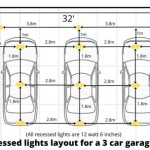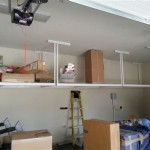Insulation For Garage Ceiling: A Comprehensive Guide
A well-insulated garage ceiling can significantly improve the comfort and energy efficiency of your home. A properly insulated garage ceiling helps to keep your home warmer in the winter, cooler in the summer, and can even reduce noise levels. Home Depot offers a wide variety of insulation options for garage ceilings, each with its own distinct advantages and disadvantages. This guide will help you understand the different types of insulation available, their application methods, and the factors to consider when choosing the best option for your needs.
Understanding Insulation Types
Home Depot offers two primary types of insulation for garage ceilings: fiberglass batts and blown-in cellulose.
Fiberglass Batts
Fiberglass batts are a common and affordable option for insulating garage ceilings. They come in various thicknesses and widths, allowing for easy installation between joists. The fiberglass material itself is made from spun glass fibers, which trap air and create an insulating layer. Fiberglass batts are generally easy to handle and install, making them a popular choice for DIY projects.
Blown-in Cellulose
Blown-in cellulose is another popular option for garage ceiling insulation. This type of insulation is made from recycled paper products that are treated with fire retardants. Cellulose is blown into place using specialized equipment, making it ideal for irregular shapes and hard-to-reach areas. The loose-fill nature of cellulose allows it to conform to the contours of your garage ceiling, providing a more consistent insulation layer. Because it is a loose fill, cellulose is also able to be easily installed around existing wiring and plumbing.
Key Considerations When Choosing Garage Ceiling Insulation
R-Value
The R-value of insulation measures its resistance to heat flow. A higher R-value indicates better insulation performance. The recommended R-value for garage ceiling insulation depends on your climate and the intended use of the garage. In general, an R-value of R-19 or higher is recommended for most garages.
Installation Method
The ease of installation is an important factor to consider. Fiberglass batts are generally easier to install for DIY projects, while blown-in cellulose requires specialized equipment and may be best left to professionals. The installation method is also influenced by the existing structure of your garage ceiling. If you have an existing layer of insulation, it is important to consider how the new insulation will be installed in conjunction with the existing layer.
Cost
Fiberglass batts are generally more affordable than blown-in cellulose. However, the cost of labor for installing blown-in cellulose may be lower than installing fiberglass batts, depending on the size and complexity of your project. If you are considering a DIY project, fiberglass batts are the more affordable option. But if you are having the work professionally installed, the price difference between the two options can be negligible.
Environmental Concerns
Cellulose insulation is a more environmentally friendly option than fiberglass batts. Cellulose is made from recycled paper products, making it a sustainable choice. Fiberglass batts are also available with recycled content, but may contribute more to landfill waste than cellulose. It is important to consider the environmental impact of your insulation choices when making a decision.
Additional Tips for Insulating Your Garage Ceiling
For optimal results, it's important to fully seal any gaps and cracks around the perimeter of your garage ceiling. This includes the area where the ceiling meets the walls and any openings for vents or pipes. These gaps can be sealed with caulk, spray foam, or weatherstripping, depending on the size and location of the gap. In addition to sealing gaps, ensure that there is adequate ventilation in your garage. This will help to prevent moisture buildup, which can lead to mold and mildew growth.
Insulating your garage ceiling is a worthwhile investment that can improve the comfort and energy efficiency of your home. Home Depot offers a wide range of insulation options to meet your needs and budget. By considering the factors discussed in this guide, you can make an informed decision about the best insulation type for your garage.

Garage Foam Board Insulation The Home Depot

Henry 1 2 In X 48 8 Ft R 5 78 Eps Rigid Foam Board Insulation 320817 The Home Depot

Everbilt 24 In X 25 Ft Double Reflective Insulation Radiant Barrier Staple Tab 24x25ri Se

Garage Door Insulation Accessories The Home Depot

Owens Corning R 30 Faced Fiberglass Insulation Batt 24 In X 48 1 Bag E56

Pro Space 24 In X 48 Radiant Barrier Garage Insulation Kit Bubble Aluminum Foil Reflective 8 Pcs Rbqpg2448p8 The Home Depot

Henry Garage Door Insulation Kit 1 4 In X 20 54 8 Panels Rigid Foam Board 320737 The Home Depot

Wellco 48 In X 100 Ft Radiant Barrier Aluminum Foil Reflective Double Bubble Insulation For Windows Rv Roof Garage Door Rbbz48100

Owens Corning Foamular 150 2 In X 4 Ft 8 R 10 Scored Squared Edge Rigid Foam Board Insulation Sheathing 45w The Home Depot

Pro Space 48 In X 50 Ft Radiant Barrier Double Bubble Aluminum Foil Reflective Insulation Rbqp54850 The Home Depot
Related Posts








